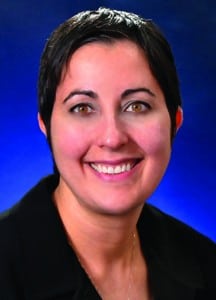As we prepare for Passover, Jewish tradition enjoins us to consider the Exodus from ancient Egyptian slavery; not as a one-time event that happened thousands of years ago, but rather, as a recurring opportunity to fight for justice and freedom for all people.
The Talmud commands each of us to experience this redemption from bondage in our own day, because the promise of liberation is an eternal promise.
The weeks leading up to Passover are a time to reflect upon those aspects of our lives that feel unjust or impact our sense of freedom. According to kabbalah, the spiritual quality that is associated with Passover is “chesed,” which means loving kindness. What we can learn from this is that a necessary component of liberation is compassion. This is what true love does: It is freeing and healing – redemptive.
During Passover, we are asked to forego chametz, which is translated as leavening. There are many mystical explanations of the deeper symbolism of chametz. One suggests that we should remove from ourselves anything that can make us “puff up” which is a reference to the ego and its defenses. Another suggests that that chametz is related to the word chamootz, which means sour.
Thus, we must relinquish the hold of all that makes us sour: be it anger, grudges or desire for revenge. Both meanings of the word speak to the aspects of self that can affect our ability to fully embody chesed – to love unconditionally, in a way that is freeing and transcendent.
These spiritual lessons have relevance for us individually and collectively. The idea that Passover is not a one-day event, but rather a week long (eight days for many), with weeks of preparation, is a reminder that all of us are on a journey. The ritual of being asked to do this every year is a reminder that it is easy to fall back into old habits.
And the parallels between this holiday’s themes and those of the high holy days teach us that we need these reminders more than annually. We need them to remind us to have compassion on others – those whose fears, shaky egos and old pain keep them from unconditional love and embrace of others.
Our world is filled with growing levels of fear, intolerance and injustice – far too many amongst us are in need of liberation. Slavery continues to exist, and millions of people around the world pray every day for their own exodus: their own passage to freedom and justice. This Passover, let us work on making this world a more loving and compassionate place for all people.
(Rabbi Nadia Siritsky is vice president of mission for KentuckyOne Health.)



